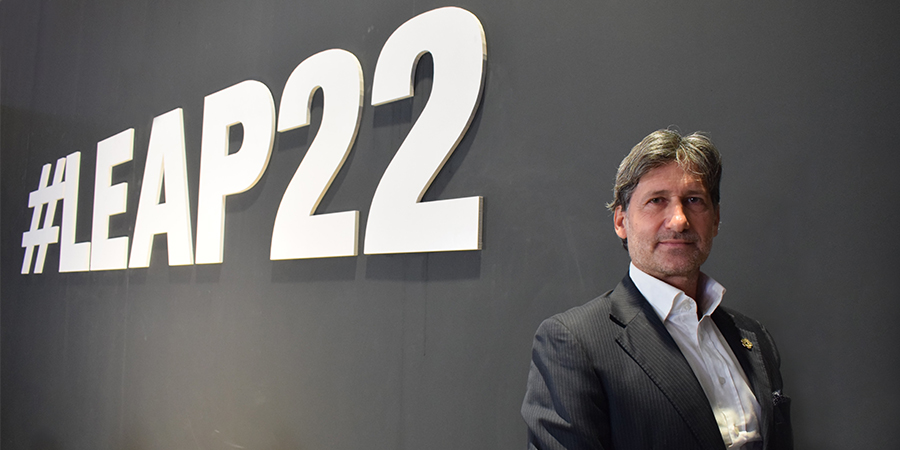In an exclusive interview with Telecom Review, Fabio Fontana, chief growth officer and executive director of compute & innovation at NEOM Tech & Digital Company, discusses the various developments taking place at NEOM, Saudi Arabia’s city of the future, during the LEAP2022 technology and innovation conference in Riyadh.
How is smart energy being utilized in the development of NEOM, which is a multi-billion dollar project?
Energy companies today definitely need to use smart and renewable energy to be sustainable and fulfill customer demand for carbon reduction. At NEOM, we are looking at 3 types of renewable energy – wind, solar and hydrogen. This is extremely important as we don't have any legacy infrastructure. We are strategically positioned in a location with a lot of natural resources, which gives us a significant advantage in the generation of smart energy.
For example, at nighttime in the Gulf of Aqaba, there are 30-knot winds that can generate energy. During the day, we have plenty of sunlight and space for solar panels. If we combine them, we can create hydrogen energy. We also have access to the Red Sea, which is full of microbes that can be used to generate biofuel as well.
So, use of renewable energy is essential when it comes to fulfilling our requirements. NEOM is an important project, but for us, sustainability is also a top priority. This is not just about the renewable energy policies of one business – we are building an entire city. This means that all the organizations based in the city must work together to accomplish this goal.
What are the main technologies being deployed at NEOM, as well as by your subsidiary, NEOM Tech & Digital Company? And how will this impact the creation of a new future? Could you please elaborate on the two product launches announced during LEAP?
We are building a cognitive city – a quantum leap in evolution from smart cities, which use about 5% of the data at their disposal. A cognitive city, on the other hand, uses up to 95% of the data collected – with the express consent given by the residents – for its operation.
At LEAP, we announced the launch of two products: M3LD, a consent management platform that allows users to regain control over the use of their data, and XVRS, the world’s first cognitive digital twin metaverse. This revolutionary platform will give users an opportunity to experience today what living at NEOM will be like in the future through a unique, mixed-reality environment.
If you look at a cognitive city, the three pillars are connectivity, compute and application. For connectivity, we have the fiber and 5G backbone. For compute, we are building a hyperscale data center and using new technology to fulfill that demand of hyperscale computing coming to the city to provide the services.
‘Cognitive’ means you can be predictive, rather than reactive. For example, let’s say, in the future – around five years from now – you are flying back home to NEOM. You want to make sure that the AC is on in your villa when you arrive . If your flight gets delayed, what do you do? With a consent platform that understands your data, your home system can automatically decide to turn on the AC when you arrive. That’s the difference between predictive/cognitive and smart.
If you want to build a smart energy city, it’s not just about how you will use renewable energy. It’s about how you make sure that you use and optimize this energy in the right way and at the right time.
Can you share more details about NEOM’s next-generation, hyperscale data center?
We are building three data centers with a total capacity of 36 megawatts that will be operational in the next couple of years. Already this year, the first 6 megawatts will be enabled. The potential capacity of the three sites will be up to 240 megawatts. These data centers will be empowered with new technologies that will be useful not only today, but also in the future.
How will the Kingdom continue to leap forward in tech innovation in the digital era from your perspective?
First of all, the most important thing is to attract talent. If you look at any company, their real value lies in the talent that they have at their disposal. Secondly, innovation is paramount. Startups are necessary for the Kingdom to create a more open ecosystem locally and internationally. Last but not least, time-to-market must be accelerated, which is crucial for the ability to remain competitive.










